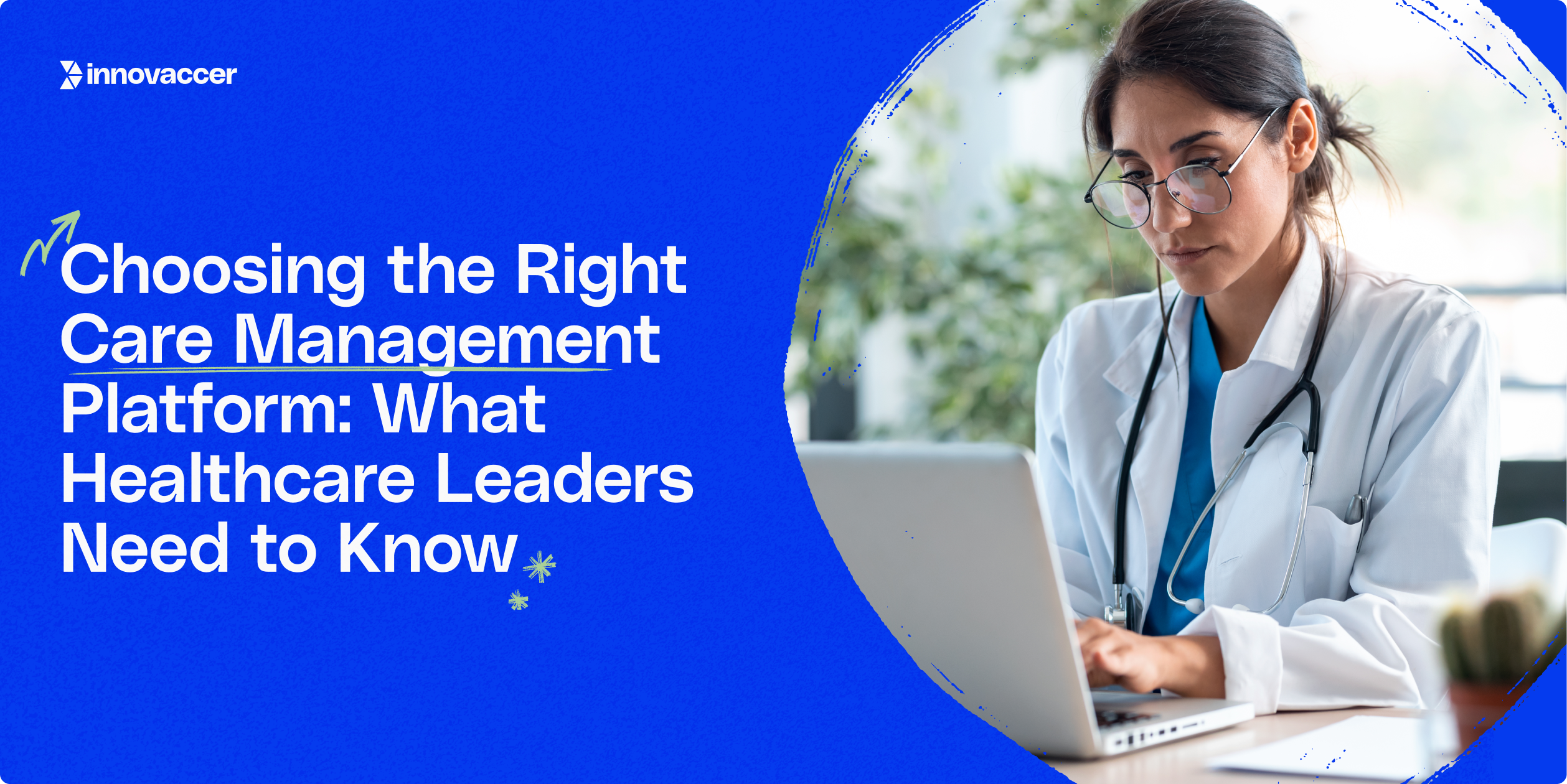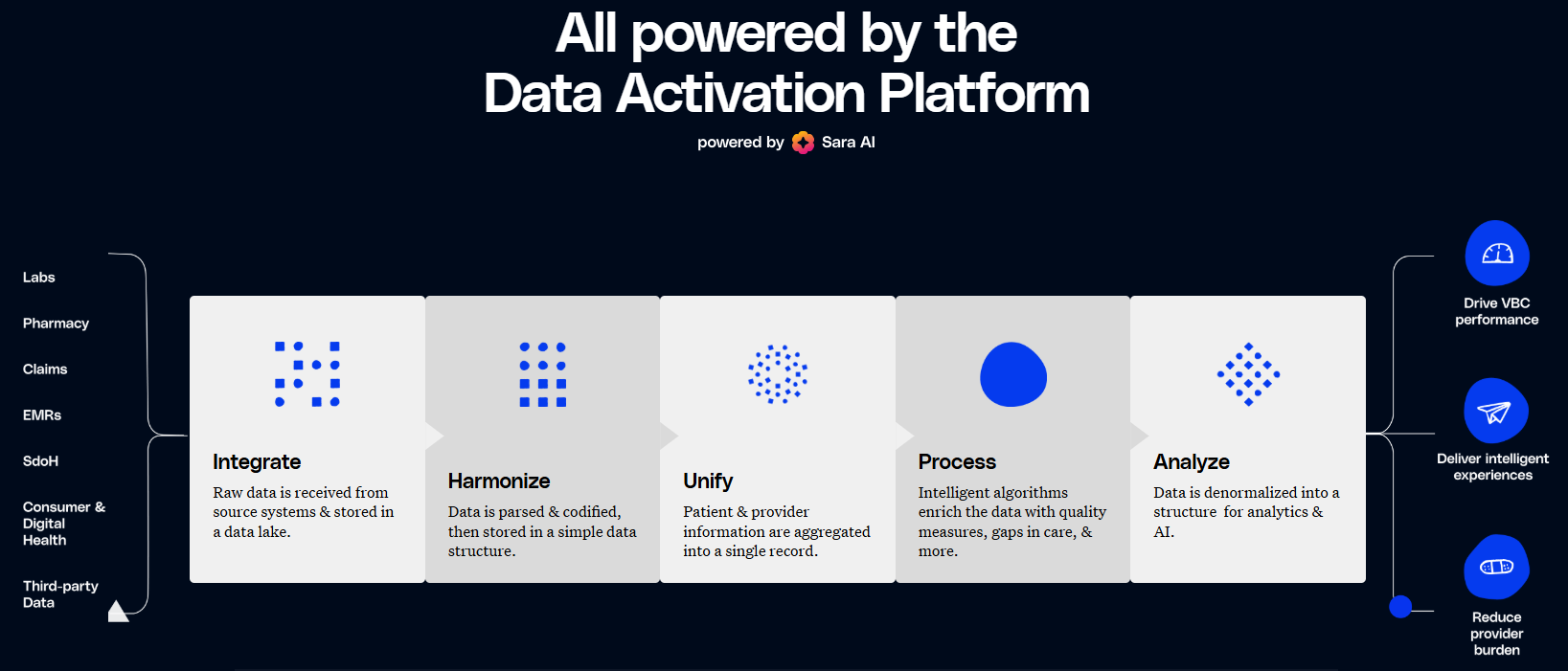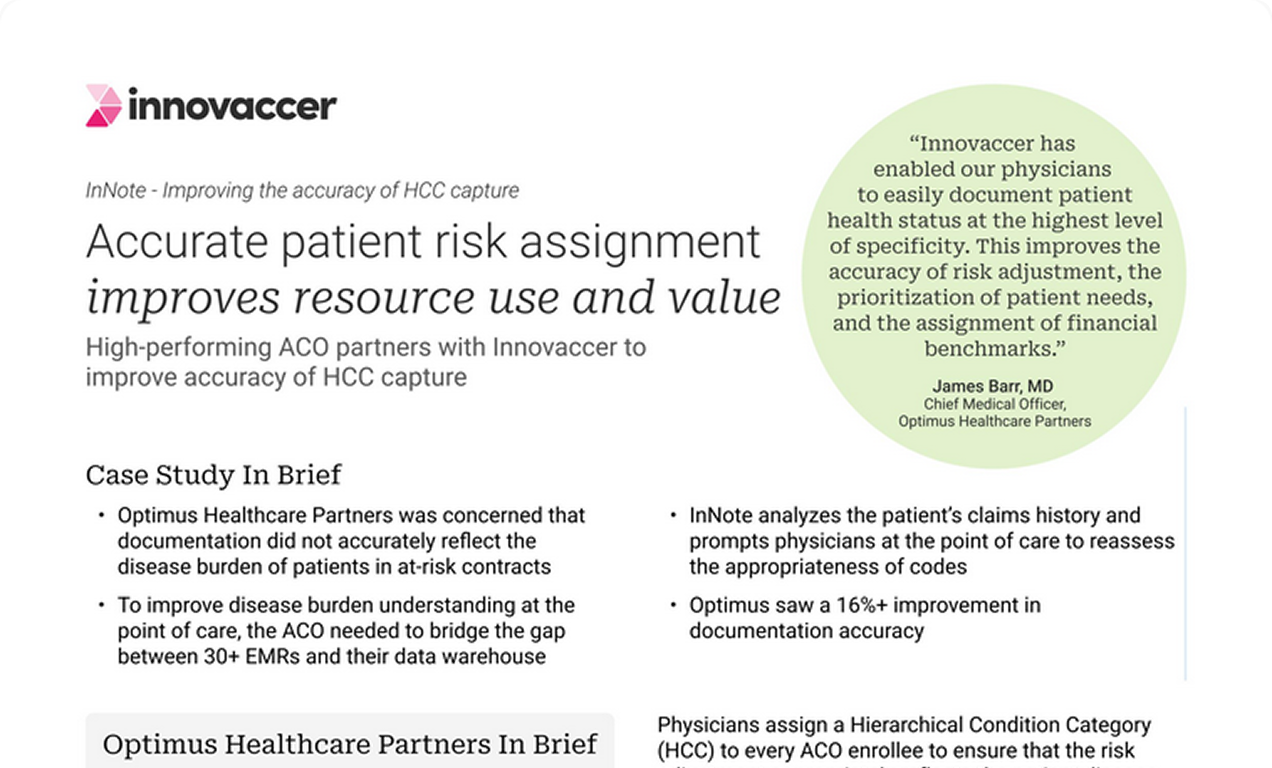Choosing the Right Care Management Platform: What Healthcare Leaders Need to Know


Think of a care management platform as the backbone of how patient care is managed. It’s the technology that unifies the fragmented data of a patient, enabling the care coordinators to track patients' care journey. This helps care managers make informed decisions.
At its core, care management is about delivering the right care at the right time as it runs on a data-driven approach. Innovative technologies like AI, telemedicine, and remote monitoring care managers, can help care teams to enhance patient outcomes, reduce costs, and ensure value-based care.
.png)
The key features to focus on while choosing a Care Management platform are :
- Scalability & Customization – Can the platform help organizations expand and adapt to unique workflows?
- Actionable Insights – Does it go beyond collecting patient data and provide real-time insights?
- Implementation & Support – Is it easy to set up, and does the vendor provide ongoing support to ensure long-term success?
- Cost & ROI – Does it reduce manual work, improve patient outcomes, and deliver real financial value?
To choose the right care management platform, it's essential to first understand what they offer and how your organization can benefit from them. Read the blog to know more.
The Urgent Need for Advanced Care Management Platforms
Healthcare faces a growing need to deliver fast and effective patient-centered care. Traditional methods often fall short when managing complex patient needs. Meanwhile, modern care offers a centralized solution that integrates various aspects of patient care into a unified system. These platforms use advanced tools like artificial intelligence (AI), natural language processing (NLP), and predictive analytics for seamless communication between care teams.
These technologies help care teams by:
- Integrating Data Seamlessly: Gathers information from different healthcare sources and provides a 360° view of a patient.
- Enabling Proactive Care: Identifies high-risk patients early and takes action to improve outcomes.
- Enhancing Collaboration: This makes it easier for care teams to work together in real-time.
For healthcare leaders, adopting a modern care management platform is essential. As it improves patient engagement, ensures regulatory compliance is being followed, and increases efficiency. It also helps organizations to take up any future challenges.
Read the blog to know more about: How Technology is Revolutionizing Care Management
Key Features for Care Management Platforms that Every Healthcare Leader Should Know
When choosing a care management platform, it is important to go above and beyond the basic functionalities, such as patient records, appointment scheduling, clinical records, etc. The key features that help healthcare executives to deliver patient-centered care while keeping up with the changes in the healthcare industry are:
- Seamless Interoperability with EHRs and Health Data Sources
There is a growing interest in using electronic health records (EHRs). EHR interoperability helps in improving care quality and efficiency. By gathering information across organizations, doctors can get better insight into their patients’ medical histories and make informed decisions about treatment plans.
The benefits of EHR interoperability include:
- Patient-centered care: EHR interoperability improves patient care by ensuring that providers have relevant information about their patients at all times. It also helps in reducing medical errors or missed diagnoses.
- Reduced costs: Costs are reduced by avoiding unnecessary tests or care procedures.
- Improved care coordination: Efficiency increases when the patients and the care provider are connected to each other to communicate.
This gives care providers a 360-degree view of a patient’s health. With access to accurate information, care teams can make better decisions by avoiding operational and manual work.
- AI-Driven Risk Stratification and Predictive Analytics
Modern care needs a tech-forward and proactive approach. With technological advancements, care management platforms should use AI to identify high-risk patients. By analyzing data, these AI platforms help care managers identify hidden risks in patients and new opportunities. Resulting in reduced readmission and better care outcome
Real-time insights further help health leaders focus on high-risk patients. With these tools, healthcare organizations can improve outcomes, reduce hospital visits, and use resources wisely.

- End-to-End Care Coordination and Workflow Automation
By automating daily operational tasks, care teams can focus more on better and personalized care outcomes. AI-powered platforms help seamless integration with electronic health records (EHRs) and ensure real-time insights. Automated solutions address challenges like fragmented care and clinician burnout, ultimately leading to more efficient and patient-centered care.
- Patient Engagement and Remote Monitoring Capabilities
Patient engagement is crucial for better care outcomes. One of the goals of remote patient monitoring is to strengthen patient engagement to drive better health outcomes.
Features like automated reminders and real-time health monitoring help patients manage their conditions. These features also alert care teams to issues early. Remote monitoring empowers patients to take charge of their own health helping providers with valuable daily insights. For healthcare organizations, patient engagement leads to better care and greater patient satisfaction.
- Compliance & Security: Meeting Regulatory Requirements
Data is the heart of the modern healthcare system, and protecting patient data is non-negotiable. A reliable care management platform must meet the highest security standards for example, HIPAA compliance and HITRUST Common Security Framework. It should offer advanced security and regular updates to meet the regulations made by the Centers for Medicare and Medicaid (CMS).
Choosing a platform that prioritizes compliance isn’t just about avoiding audit risk but its about building trust with patients.
Evaluating Vendor Solutions: What to Ask Before You Buy?
Selecting the right care management platform goes beyond just ticking off a feature checklist. It requires thorough research, a proper understanding of a solution, and what is the ultimate goal and future needs of the organization. Thus, asking the right set of questions becomes important.
Is the Platform Scalable and Customizable?
It’s crucial to choose a solution that can scale with your patient population and adapt to ever-changing regulatory models.
Questions to Ask: Is the platform customizable to meet specific needs? Can it integrate with existing workflows?
A flexible platform allows you to tailor care pathways, reporting, and patient engagement strategies. It also helps ensure that with technological advancements the scalability of the organization also expands, supporting both current and future innovation.
Does It Provide Actionable Insights, Not Just Data?
A care management platform should go beyond simply accumulating information. It provides real-time insights and meaningful analytics that drive better clinical and operational decisions.
Questions to Ask: How does the platform identify care gaps? Does the platform flag high-risk patients? Does it provide predictive insights for early interventions?
The right solution should surface the most critical information and empower teams to act quickly and effectively. Actionable insights not only improve patient outcomes but also help streamline processes and optimize resource allocation.
What’s the Implementation Timeline and Support Model?
A smooth implementation process is critical to realizing value quickly.
Questions to Ask: What is the timeline for the implementation? How do you handle data migration from existing systems? What measures are in place to ensure data accuracy? What types of training do you offer for care teams and administrators? How does your team collaborate with internal stakeholders throughout the process?
A transparent, well-defined implementation and support strategy minimizes disruption and accelerates time-to-value.
How Does It Improve ROI & Reduce Costs?
Investing in a care management platform should deliver measurable financial and operational benefits.
Questions to Ask: How does your solution reduce administrative work? Does the platform use AI to identify patient risks? How does it improve care coordination? Does the platform support value-based care initiatives?
The right solution can help in fewer hospital readmissions and better patient outcomes. This increases efficiency and enables care teams to engage 30-40% more patients directly. A vendor should provide case studies or real-world examples of how their technology drives ROI, offering clear evidence of your investment.
Future-Proofing Your Care Management Strategy
As healthcare continues to evolve, future-proofing your care management strategy is no longer optional; it’s a necessity.
Look for a solution that prioritizes interoperability, enabling seamless data exchange across EHRs and external systems.
Ensure it offers advanced analytics and AI-driven insights to anticipate patient needs and improve decision-making.
Flexibility is key! A customizable platform is required to align with your organization’s workflows while scaling effortlessly as the patient population grows. Additionally, it is very important to identify vendors who are open to adapting to regulatory changes and innovation. By investing in a solution designed to evolve with your organization, you can improve patient outcomes and maintain operational excellence.


.png)






.avif)









.svg)
.svg)

.svg)

